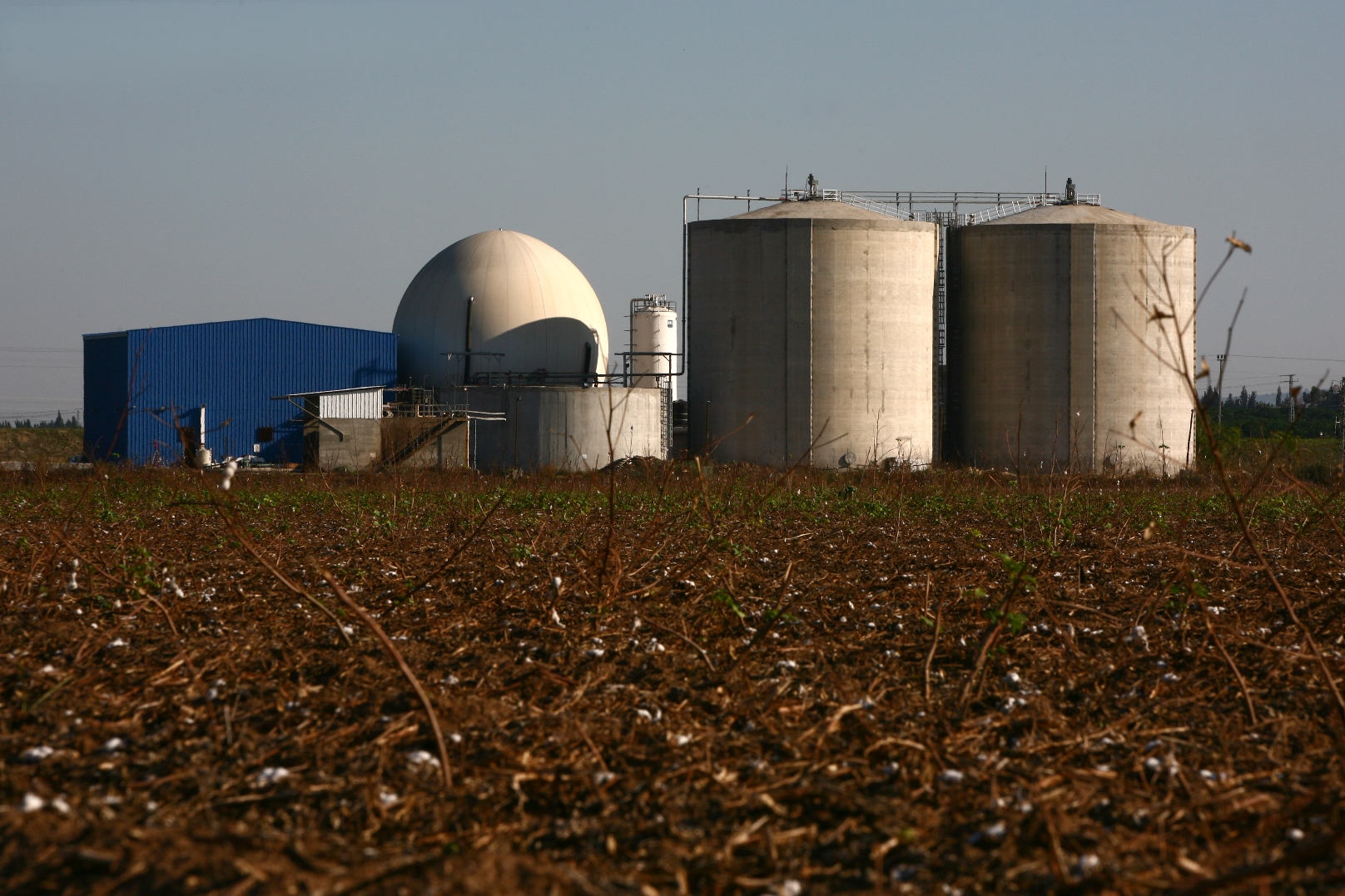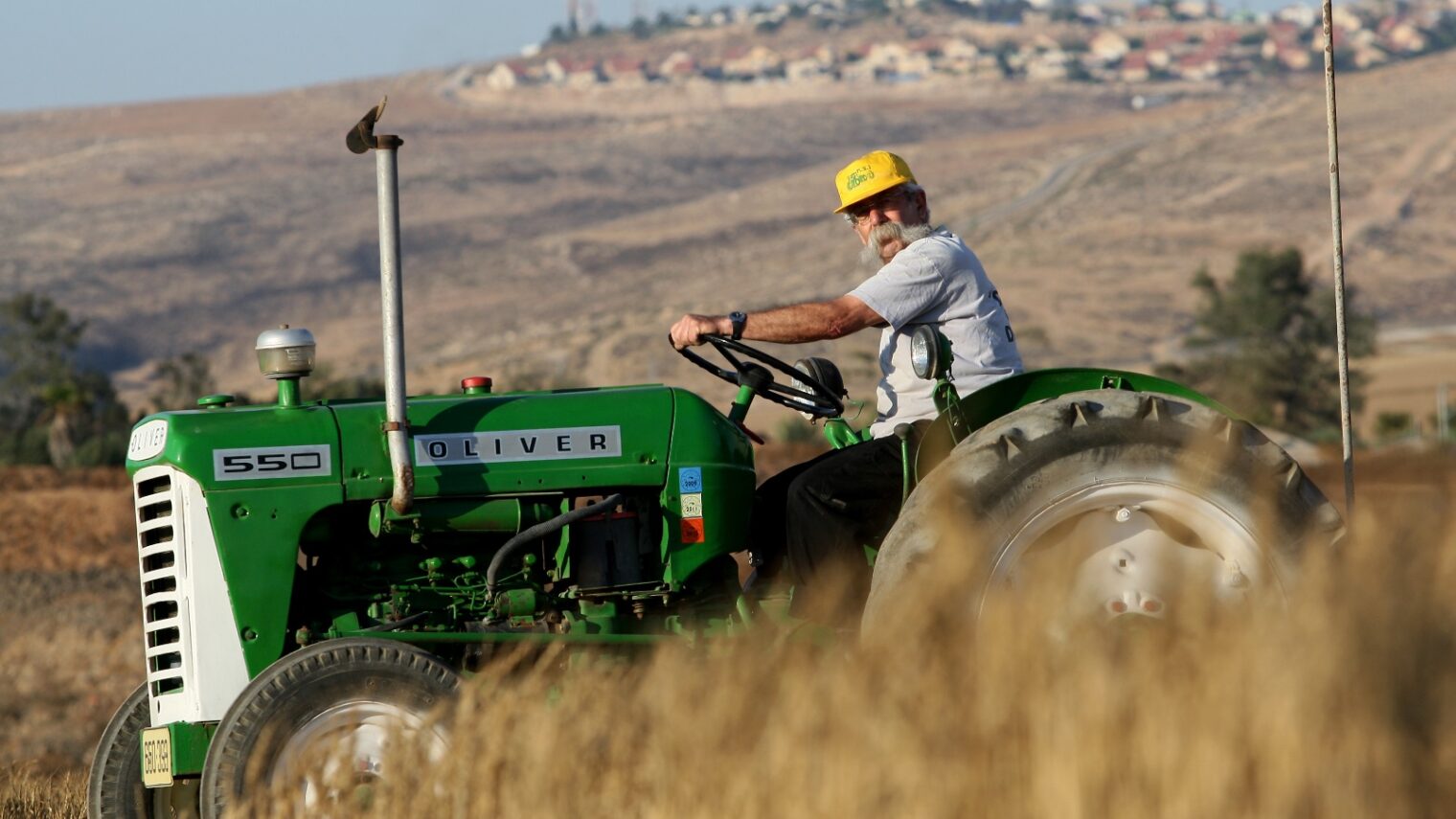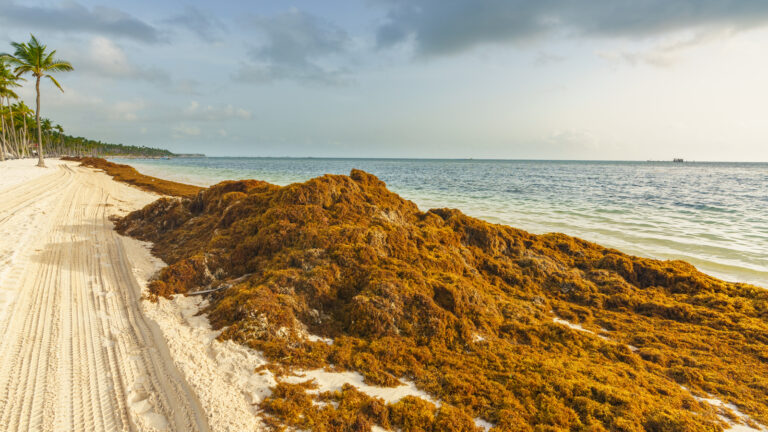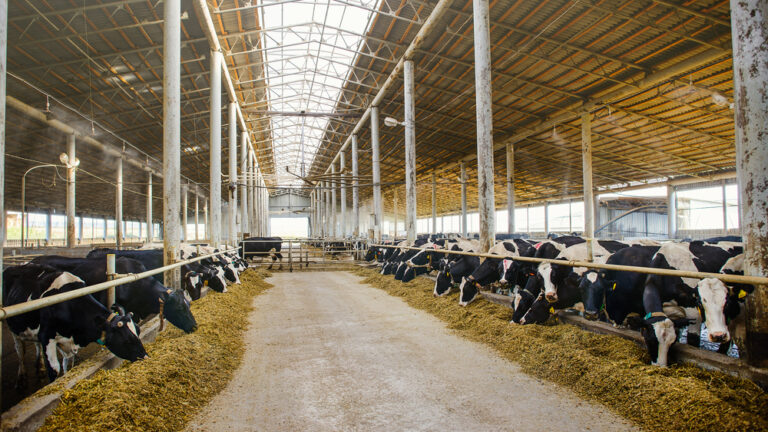Israel’s first facility built specifically to produce biogas out of organic waste from kibbutzim will soon get under construction at Kibbutz Lahav, about 20 kilometers north of Beersheva.
“We will handle about 150 tons of waste per day and we are planning to produce about 600 to 800 kilowatts per hour depending on the organic waste capacity from [kibbutzim in] the surrounding area,” says Yaacov Tsemach, CEO of Doral Energy, a subsidiary of the Doral Group in Ramat Gan.
Methane, a gas naturally produced in the stomachs of livestock, can be converted into biogas for generating electricity.
“In Israel, there are three facilities for handling agricultural manure,” Tsemach tells ISRAEL21c. “These are regional facilities and large-scale facilities. The same technology also exists in Israeli food plants and sewage treatment plants. In the food factories, the biogas plants produce steam that powers the factories.
“The uniqueness of the facility we are planning to establish is that it is a link to the farm and primarily serves the needs of the kibbutz.”
Dairy farms and chicken coops
When Doral was founded 20 years ago, its focus was on real-estate development and urban renewal in Israel and abroad. At that time, a big change was brewing in Israel’s kibbutz movement. Most of the communal agricultural villages that typified the early days of the state were privatizing and modernizing as socialism proved an unsustainable model for long-term prosperity.
In Israel, Tsemach explains, Doral saw an opportunity to help the transitioning kibbutzim upgrade and expand. The company helped many of the collectives plan and implement new construction and infrastructure — including the vacation accommodations that have become an important source of income for many rural kibbutzim — using “green” approaches. And that led to the establishment of Doral Energy.
“Eight years ago, the company began to initiate and establish photovoltaic systems on the roofs of dairy farms and roofs of chicken coops in kibbutzim,” says Tsemach. “In recent years, the company — now a group of companies — expanded its operations to other areas of renewable energy, such as biogas energy and wind energy.”
Biogas technologies have advanced over the years, Tsemach says.
“The performance of such facilities has developed and improved, with innovations mainly in the field of monitoring and control systems. The plants that use a closed anaerobic system are environmentally friendly and they solve many environmental problems, such as bad odors, flies and pollution of soil and groundwater.”

Kibbutz Lahav had long sought a better solution for dealing with the problems of wastewater treatment and disposal caused by waste from its pig-farming enterprise, Tsemach explains.
“They studied the subject deeply and decided to promote the biogas project,” he says. The estimated cost of the project is $3.8 million.
The Israeli government has enacted regulations offering tariff support for biogas-generated electricity flowing into the power grid, he adds.
“When Doral identified the potential for these regulations with the need of the kibbutzim to solve their waste problems, we decided to collaborate with kibbutzim including Kibbutz Lahav, where we already have a number of initiatives in the area of renewable energy,” he relates.
A spokesman from the kibbutz said, “Kibbutz Lahav is always looking for energy solutions for its sector and is glad to cooperate with Doral. The joint development will provide a good opportunity to create a long-term solution for the kibbutz’s needs.”
Doral is now dealing with the bureaucratic groundwork for the project. “Hopefully in a few months we will complete all the requirement issues, including financing and obtaining a power-generation license from the Electricity Authority,” Tsemach reports.
Doral Energy is also involved in dozens of ongoing solar- and wind-electricity projects on kibbutzim throughout Israel, adding up to about 30 megawatts per hour in total, according to Tsemach.
“We are now engaged in developing several complexes of different types of energy facilities, like ground solar-power plants, biogas plants and cogeneration power plants,” he says.
Overseas, Doral mainly spearheads green residential and commercial building projects in Eastern Europe, particularly in the major cities of Poland and Slovakia.
“I hope this collaboration between Doral and Kibbutz Lahav will set a positive example for other agricultural enterprises, which desperately require high-quality financial solutions for the hazardous materials created in the cowsheds, chicken coops and other agricultural pursuits,” says Tsemach.
















